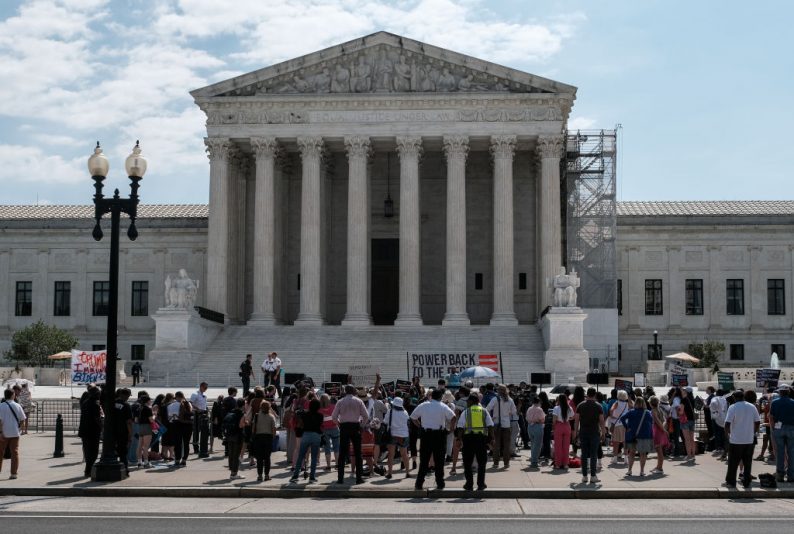

OAN’s James Meyers
10:34 AM – Friday, June 28, 2024
In a major decision, the Supreme Court ruled in favor of January 6th defendant and former Pennsylvania police officer Joseph Fischer, which will now most likely have a significant impact on how the Department of Justice can prosecute those involved with the January 6th breach at the U.S. Capitol.
Advertisement
In a 6-3 decision, in which Justice Ketanji Brown Jackson surprisingly joined the conservative majority while Justice Amy Coney Barrett sided with prosecutors, the Supreme Court concluded that prosecutors must use the statutory language of the obstruction charge used in a slew of January 6th prosecutions.
“The Government must establish that the defendant impaired the availability or integrity for use in an official proceeding of records, documents, objects, or as we earlier explained, other things used in the proceeding, or attempted to do so,” Chief Justice John Roberts wrote in the majority opinion.
The court’s decision ruled against the Biden administration’s interpretation of the 2002 Sarbanes-Oxley Act, which stipulates that anyone who “alters, destroys, mutilates, or conceals a record, document, or other object, or attempts to do so, with the intent to impair the object’s integrity or availability for use in an official proceeding; or otherwise obstructs, influences, or impedes any official proceeding, or attempts to do so” faces criminal liability.
Fischer’s defense team focused on the phrase “otherwise obstructs, influences, or impedes any official proceeding,” which is found in the statute. Fischer’s attorney, Jeffrey Green, argued that the law’s primary intent was to address evidence tampering, not to prosecute actions of Fischer.
The court’s majority agreed, with Justice Samuel Alito being a major voice of skepticism during oral arguments about the government’s broad reading of the statute.
This final ruling exemplifies a major setback for the Biden administration, which has used the obstruction statute in cases that have affected over 300 people involved in the January 6th protest.
Additionally, over 50 of these defendants had pleaded guilty to the charge. The ruling now raises many questions regarding the future of January 6th cases and the potential for appeals and overturned convictions.
Furthermore, Fischer, who had been facing up to 20 years in prison, will now see the obstruction charge dismissed, but he will still also continue to face other charges for his involvement in the protest.
Stay informed! Receive breaking news blasts directly to your inbox for free. Subscribe here. https://www.oann.com/alerts

